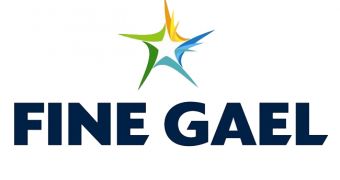The Fine Gael Irish political party has emailed nearly 2,000 users to notify them that their data was exposed after its website got hacked by members of Anonymous this weekend.
The hack happened Sunday evening with the attackers replacing the front page with the Anonymous logo and a message reading:
"Nothing is safe, you put your faith in this political party and they take no measures to protect you. They offer you free speech yet they censor your voice. WAKE UP!"
Fine Gael is the one of the two largest political parties in Ireland and according to recent polls, it is credited with much more public support for the March General Election than its primary rival, Fianna Fail.
Last week, the party launched its campaign website finegael2011.com and immediately began attracting supporters who signed up to post comments and register their contact details.
While the anti-censorship message conveyed by the hackers via this defacement is pretty clear, the exact reasons that prompted their action remain unclear.
Anonymous is viewed as a group of hacktivists who fight for freedom of expression on the Internet and against draconian copyright legislation. They are known for using illegal means to protest.
The collective has recently engaged in a support campaign for WikiLeaks and its editor-in-chief Julian Assange which resulted in many distributed denial of service (DDoS) attacks and website defacements.
However, it's worth keeping in mind that Anonymous is a more of a movement than a group and has no clear structure. People participate in actions that resonate with their own believes and because of this, different Anonymous cells can split off and do things on their own.
"Last night, we regret to report, the Fine Gael website was professionally hacked," the party said in its notification email, although the meaning of professional hacking in this context is not immediately clear.
"We were alerted this morning that the Anonymous Group was able to secure the database of the information submitted by members of the public during the previous week. This affected just under 2,000 subscribers," it noted, according to RTE News.
The leaked information is said to contain email addresses, phone numbers and IP addresses, but according to some reports the number of affected individuals is much larger, being close to 4,000.

 14 DAY TRIAL //
14 DAY TRIAL //